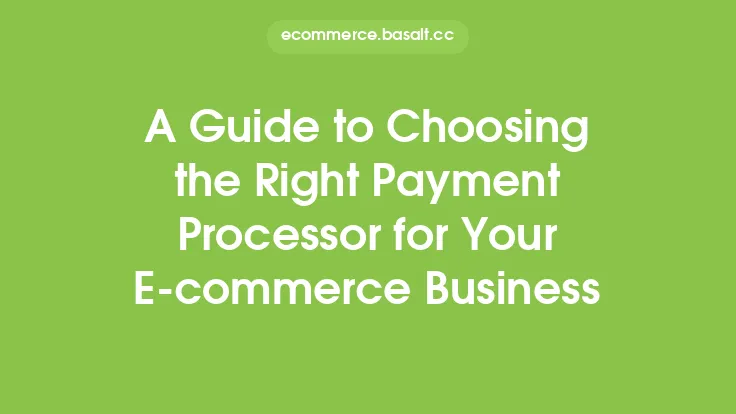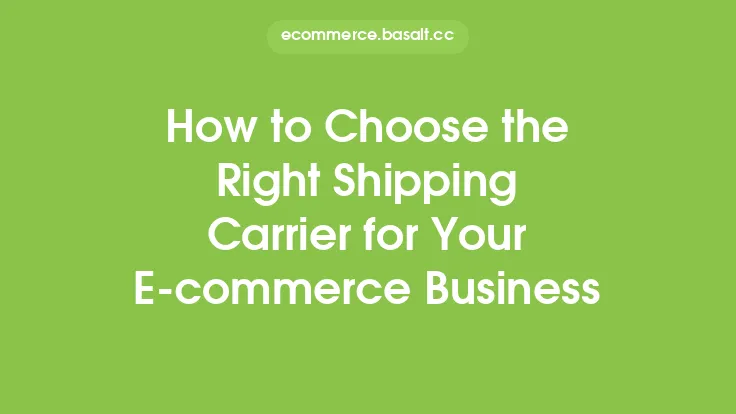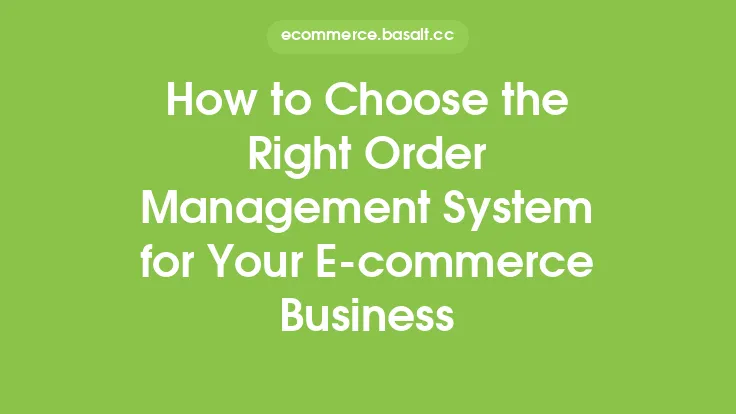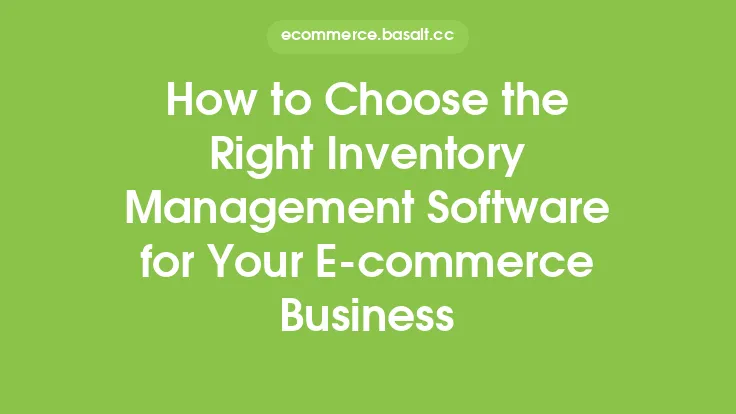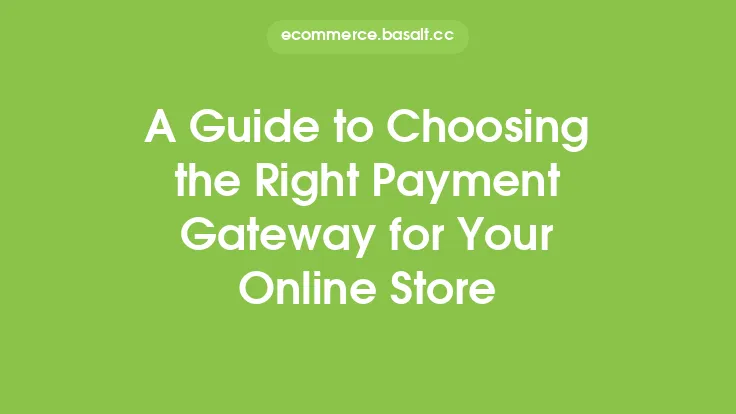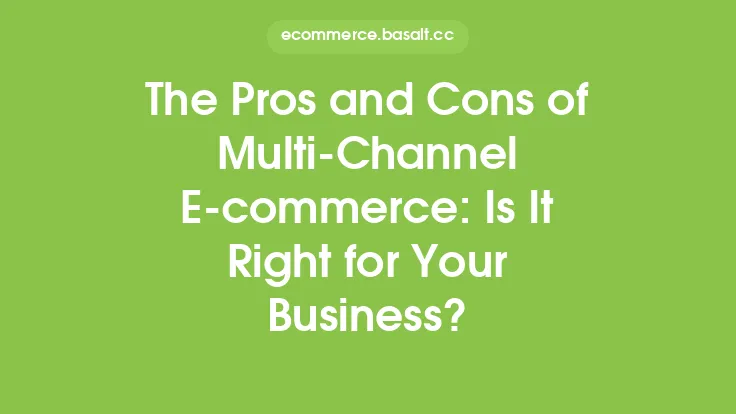When it comes to establishing an online presence for your business, selecting the right e-commerce platform is a crucial decision. With numerous options available, each with its own set of features, benefits, and drawbacks, choosing the perfect platform can be overwhelming. In this article, we will delve into the key considerations and factors that will help you make an informed decision when selecting an e-commerce platform for your business.
Understanding Your Business Needs
Before starting your search for the ideal e-commerce platform, it's essential to have a clear understanding of your business needs. Consider the type of products or services you offer, your target audience, and your sales strategy. Determine the level of customization you require, the integrations you need with third-party services, and the scalability you expect for your business. Having a solid grasp of your business requirements will help you narrow down your options and choose a platform that aligns with your goals.
Types of E-commerce Platforms
E-commerce platforms can be broadly categorized into three types: open-source, hosted, and hybrid. Open-source platforms, such as Magento and WooCommerce, offer flexibility and customization but require technical expertise and resources for maintenance and updates. Hosted platforms, like Shopify and BigCommerce, provide an all-in-one solution with ease of use, security, and support but may have limitations in terms of customization. Hybrid platforms, such as Salesforce Commerce Cloud, combine the benefits of open-source and hosted platforms, offering flexibility, scalability, and support. Understanding the differences between these types of platforms will help you choose the one that best suits your business needs.
Key Features to Consider
When evaluating e-commerce platforms, there are several key features to consider. These include product management, order management, payment gateways, shipping integrations, and customer management. You should also look for features like mobile responsiveness, search engine optimization (SEO), and social media integration. Additionally, consider the platform's content management capabilities, such as blogging and content creation tools. A platform that offers a range of features and tools will help you create a seamless and engaging shopping experience for your customers.
Security and Reliability
Security and reliability are critical factors to consider when choosing an e-commerce platform. Look for platforms that offer robust security features, such as SSL encryption, secure payment processing, and regular software updates. You should also consider the platform's uptime and downtime policies, as well as its disaster recovery and backup procedures. A secure and reliable platform will protect your business and customer data, ensuring a trustworthy shopping experience.
Integration and Compatibility
Integration and compatibility are essential considerations when selecting an e-commerce platform. You should look for platforms that offer seamless integrations with third-party services, such as payment gateways, shipping providers, and social media platforms. Additionally, consider the platform's compatibility with different devices, browsers, and operating systems. A platform that offers flexible integration and compatibility options will help you expand your reach and improve customer engagement.
Support and Community
The level of support and community offered by an e-commerce platform can significantly impact your business. Look for platforms that provide comprehensive documentation, tutorials, and customer support. A platform with an active community of developers, users, and partners can offer valuable resources, extensions, and plugins to enhance your online store. Consider the platform's support channels, such as phone, email, and live chat, as well as its response time and resolution rate.
Cost and Pricing
The cost and pricing of an e-commerce platform can vary significantly, depending on the type of platform, features, and services offered. Consider the platform's pricing model, including any monthly or annual fees, transaction fees, and payment processing fees. You should also factor in the cost of any additional features, extensions, or services you may need. A platform that offers transparent and flexible pricing will help you manage your costs and budget effectively.
Conclusion
Choosing the right e-commerce platform for your business is a critical decision that requires careful consideration of several factors. By understanding your business needs, types of e-commerce platforms, key features, security and reliability, integration and compatibility, support and community, and cost and pricing, you can make an informed decision that aligns with your goals and objectives. Remember to prioritize your business requirements, evaluate the pros and cons of each platform, and consider seeking advice from experts or conducting thorough research before making your final decision. With the right e-commerce platform, you can create a seamless and engaging shopping experience for your customers, driving sales, revenue, and growth for your business.
